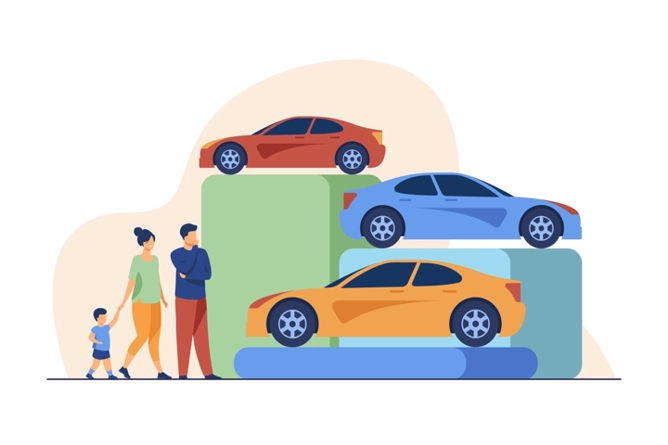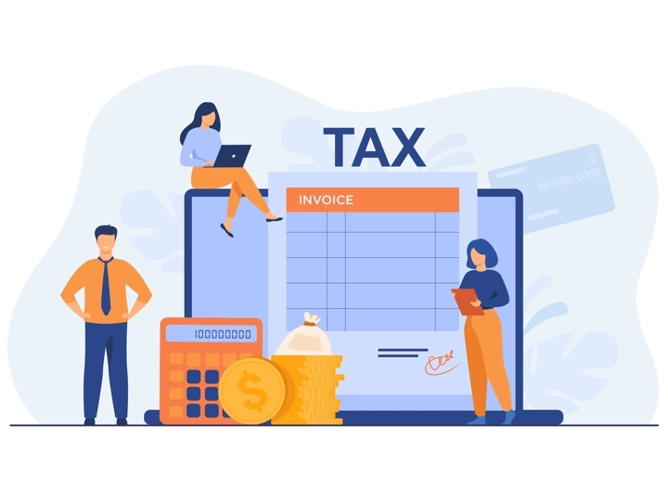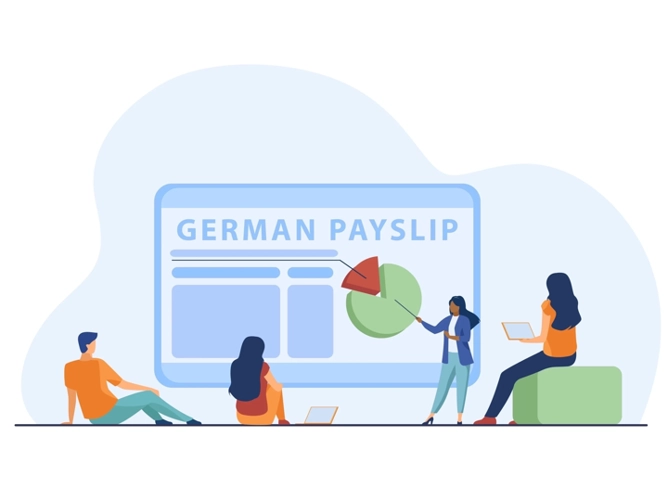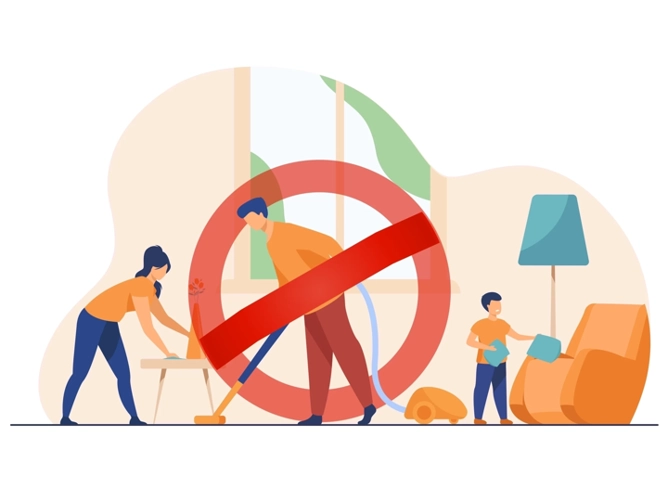
Buying A Car In Germany - [2024 Complete Guide] - Live In Germany
If you have clicked on this article, you have made up your mind about buying a car in Germany for yourself. Below are the details telling you how to buy a car in Germany. The process of buying a car is the same for buying from another person or buying from a dealership. The guide will assist you with all the steps regarding what things to pay attention to.
How to Buy a Car in Germnay
Do You Need A Car In Germany?
No. Firstly, cars are comparatively pricey and at times not that much useful. This is due to not enough parking and traffic problems. In contrast to that, public transport is considered to be a cheaper, better and a faster option. With that being said, cars still come handy for road trips and in case you want to move big stuff.
Can A Foreigner Buy A Car In Germany?
Of course. Buying a car in Germany is allowed for a foreigner. But you have to be a registered resident for that. This has to be noted that driving a car in Germany is only allowed if your foreign driving license is considered legal in the country. The detailed guide mentioned below will let you know if you need a German driving license.
Types Of Cars In Germany
Before buying a car in Germany, you should have a look at different types of cars available in the market.
New Car (Neuwagen)
If your desired vehicle is a brand-new car, you will require services of a car dealer. You can discuss all the configuration and related details with him.
Used Car (Gebrauchtwagen)
Depreciation rate is high during the initial years of a new car. Because of that, used cars are popular in Germany. Used cars can be bought from either individual or car dealership.
Car Being Used For One Year Maximum (Jahreswagen)
The blend of new and used car is known as Jahreswagen. This type of car is maximum one year old. This way, you get a car in immaculate condition. These cars are usually used by those working at car dealerships. Jahreswagen can only be acquired through a brand dealership.
Car Register for a Day and Then Sold (Tagezulassung)
In this type, the car is registered just for a day by the dealer. During this time, the car will not move a cm from it’s place. The dealer does this in order to sell the car for a discounted price, As on paper you are the second owner of the car but in reality you will be first person who will drive the car
Buying A Car In Germany
Below mentioned is a guide of nine steps briefly explained. This will walk you through the entire process of wanting a car to owning a car.
Searching your Desired Car
The first step is to find the car of your liking. You will have to study and find out car dealerships. The best pages for such purpose are autoscout24.de, mobile.de and eBay Kleinanzeigen. English service is available in all these websites. They all offer options for new and used cars. You will have to make a profile in the beginning and then list down your required specifications. There are various options starting from a sedan car to a five-seat family car. There are multiple filters to set for every particular detail.
There’s also a wish list option where you can add up your favorite cars or cars with your desired requirements. That way, if the car gets added up to the website in the near future, you will be alerted.
Inspection When Buying A Used Car in Germany
- First Registration (Erstzulassung – EZ) This will identify age of the car
- Number of former owners (Vorbesitzer) – better to have less previous owners
- Mileage (Kilometerstand) – One of the important benchmarks
- Fuel type (Kraftstoffart) – Diesel or Petrol (Benzin)
- Engine Power (Leistung) – Horsepower
- Transmission (Getriebe) – Automatic (Automatik)or manual gearing (Schaltgetriebe). Mostly cars are manual in Germany.
- Accident-free car (Unfallfrei) – make sure to avoid cars who have been in accidents
- Maintenance record (Checkheft gepflegt) – Prefers those cars offering full maintenance record. If not, car seems doubtful.
- The upcoming date of periodic technical inspection (Hauptuntersuchung – HU) – you should look for cars with at least one year until the next HU or ideally a new HU upon purchase
- Air Conditioning (Klimaanlage) – You’ll have to check this. Not all the cars come with AC installed
- Emission sticker (Umweltplakete) – There are cities which are environmental zones. Only cars with green emission stickers (Euro 4) can enter there.
Dealership Or Private Person?
If you are buying from a dealership, you will have to pay VAT. This additional amount will be inclusive of your car price. In case of buying from a private seller, VAT payment is not required.
Speaking of dealership, there is a warranty of 2 years (Gewährleistung) for new cars. For used cars, there is a 1-year warranty. In contrast to that, there is no warranty when buying from a private seller.
The current existing problems in a car are covered in warranty. This excludes any future problems. If your selected car has some defects, fixing them is seller’s responsibility. The normal wear, oil changes are not covered in this. There is also an optional warranty being offered by dealerships.
In case a dealership is selling a car on behalf of another individual, you don’t have to pay VAT. Also, you won’t get any warranty. It will be similar to buying from a private seller. Make sure you read all the documents thoroughly before signing. This is because some dealers try to remove warranty from the paperwork.
Visiting Car Dealership in Germany
Shortlist the cars of your preference. Call the private seller or the car dealer to confirm if the car is still available. Make an appointment for a visit. The good car dealers always allow a test drive so you can further inspect the car. If you have little to zero knowledge about cars, better take a friend along who is familiar with car knowledge.
Buy The Car in Germany
You will now make a down payment for the car. A binding order needs to be signed between you and the car dealer. This doesn’t mean that you will now drive off the new car instantly. Not at least before you register and insure the car. Also, there are a few dealers who take care of the registration for you. This can be either free or for a fee.
Used Car Dealership Warranty
Upon buying a used car, a one-year warranty will be provided by the dealer. If the warranty is being excluded from the contract, it is recommended not to buy that car. This means the car the fishy. The warranty will cover the cost of defects appearing in initial months after you have purchased the car.
Used Car Dealership Guarantee
a number of car dealers offer extended guarantee as well. This ranges between one to three years but for an additional fee. This covers those defects which didn’t exist before taking ownership of car. The defects can be different like electrical cover, technical cover. Although, the labor cost is mostly covered in this guarantee. The material cost for instance, is covered between 30% to 100%. This range depends on the mileage since the defect time period.
TÜV Inspection
In Germany, all the cars have to pass an inspection test after every 2 years. It is officially called HU (Hauptuntersuchung). The word TÜV is more common since it’s an institution popular for vehicle inspection in Germany. After your car has passed the inspection test, you will have a sticker to paste on your license plate.
This inspection cost around €70 to €150. It can be performed by workshops certified by Dekra, TÜV, GTÜ or KÜS. If the dealer sells you a car inclusive of an inspection test, then they are responsible for taking the car to inspection.
After successful inspection, you will provide the dealer with down payment. After that, you will have the possession of registration papers (Zulassungsbescheinigung I and Zulassungsbescheinigung II) of the car along with TÜV document.
Registration certificate, part 1 (Zulassungsbescheinigung Teil I)This document fits in your pocket when folded. It is compulsory to carry it whenever you drive the car.
Registration certificate, part 2 (Zulassungsbescheinigung Teil II)This document can be left home. It is a half-folded sheet of paper. In case of an old car, you will get a Fahrzeugbrief. This is an older version of the Zulassungsbescheinigung Teil II.
Appointment for Registering The Car
An online appointment needs to be made at the vehicle registration office (Kfz-Zulassungsstelle). Your car can only be registered in the city where you are registered.
Chossing the Right Car Insurance in Germany
After car registration, it is compulsory to show that you will have insurance. Here, you need to ask for a eVB number. This can be done online. This number is required when your car is registered. You can make use of Tarifcheck or Verivox for comparison of insurance rates. In case you are not good at German, Getsafe is a good option. It offers car insurance and provides English customer support.
In Germany, there are three types of car insurances:
- Car Liability (Kfz-Haftpflichtversicherung)
- Partial Cover (Teilkasko)
- Comprehensive Cover (Vollkasko)
The eVB number will remain valid only for the kind of insurance you have applied.
Need Help with Car Insurance in Germany?
Check out our detailed article on Comprehensive Guide to Car Insurance.
Buying License Plates
The new license plates can be reserved and bought online. This way, you can save both money and time. If available, you can get the combination of license plate according to your liking. The first letter has to be an acronym stating your city and where your car is registered. If online procedure is not feasible for you, there are many manufacturers of license plate around registration office.
Seasonal License Plates (*Saisonkennzeichen)*
These are temporary license plates which allows you to drive during the months of your choice. The chosen months are written down on the license plate. It is strictly suggested to only drive the car in those selected months only. Other than the selected months, you can neither drive nor leave the car on street.
The seasonal plates come handy if you are looking to save some money. Since you will be driving the car in selected months, you will have to pay tax and insurance for that time period only.
Registering The Car
At the time of appointment, take along all the documents and the license plate with you to the registration office. Buy the Umweltplakete from clerk directly. This is a lot cheaper than buying online. The clerk will print a new vehicle registration – the Fahrzeugschein (a.k.a. Zulassungsbescheinigung I) and add your name to the vehicle title – the Fahrzeugbrief (a.k.a. Zulassungsbescheinigung II). They will also put the sticker of your city and the HU/TÜV sticker on the license plates.
Curious About How to Register Your Car in Germany?
Check out our detailed article on Guide to Car Registration in Germany.
Online
Online registration for vehicles is available in Berlin. This goes for both new and used vehicles. The fees for online is same as in person. In case of buying a used car, the previous registration documents must contain eID. If eID is not present, the vehicle cannot be registered online. In case of vehicle being registered in Brandenburg, there too you cant register online.
Picking Up The Car
Finally, it is now time to go pick up your new car. It is better to let your dealer know that you now have a license plate. This will have them prepare the documentation for you. The dealer will provide you with complete paperwork when you go for car collection. The documents will include Kaufvertrag (purchase contract), maintenance record and the guarantee contract if you have bought that.
The Timeline From Buying A Car to Picking It Up In Germany
The duration from the moment you sign the purchase order of the car to the time you actually drive it can vary. This depends on the car having a valid TÜV/HU and how quickly you get an appointment at the registration office.
| Steps | From the First Thought of Buying Car to Owning a Car |
|---|---|
| 1 | • Go to car dealer, inspect, have a test drive, and buy the car • Book registration appointment at the Kfz-Zulassungsstelle |
| 2 | • Wire the down-payment |
| 3 | • Car dealer takes care of TÜV inspection and afterward sends you the car registration papers and TÜV certificate via postal mail • Reserve and order license plates online |
| 4 | • Car registration papers received via postal mail • Get license plate printed • Buy Car insurance |
| 5 | • License plates arrived via DHL |
| 6 | • Go to the registration office with all documents and get car registered • Go to the car dealer and pick up the car |
Buying A Car In Germany Online
If the above-mentioned process seems troublesome or hassle for you, you can surely go for the online option. In addition to that, this option is a comfortable option.
The used car market has been prevailing since last few years. Instamotion is one of those online platforms where you can order the car online. They will deliver you a ready-to-drive registered car. The website offers different types of used cars having age of five years max. These have maximum mileage of 100,000 km. The quality check is being run on these cars. They also have a TÜV and warranty of one year minimum.
Instamotion also offers 14-day 100% money back guarantee in case you are not satisfied with the car.
The only drawback with this website is the German language. Though, you can translate in English using Translate option in Chrome.
How Much It Costs to Buy A Car In Germany?
Apart from the actual cost of the car, you can ideally keep €1000 extra. This amount includes stuff like car registration, car insurance and vehicle tax payment. Below mentioned is the break-up of the costs incurred in buying a car in Germany.
Car Prices In Germany
As of now, the average car price in Germany is approximately €36,500. Used cars for instance, have an average price of €19,000 in Germany. But this price varies a lot considering the make, model and other specifications of the car.
Car Taxes In Germany
In Germany, every car owner has to pay the car taxes. The tax amount varies according to different make, model and engines. For a new car, the average annual car tax is around €200. You can make use of a car tax calculator in English to check how much tax amount you have to pay. You have to provide your bank details at the registration office. This way, the assigned authorities will collect tax amount directly from your account.
Car Insurance In Germany
Other than the actual cost of the car, the cost of car insurance is one of the highest for an owner. The average cost for liability car insurance is about €258 a year. If you want to add a partial cover (Teilkasko) to it. In that case, you pay, on average, €89, and if you wish to have the full comprehensive cover (Vollkasko), you must add, on average, €329 to the liability cover. Therefore, fully comprehensive car insurance costs €587 on average per year.
Car Registration In Germany
For registration, you will have to pay for the license plates, registration fee, emission sticker and the TÜV inspection. There is a variation of pricing among different cities and service providers.
Conclusion
Congratulations, you have finally done it. With the help of our step-by-step guide, you will be able to acquire a car of your choice in Germany and drive the German Autobahn.
Do You Know About Summer \& Winter Tires in Germany?
Source: Business vector created by pch.vector – www.freepik.com

Jibran Shahid
Hi, I am Jibran, your fellow expat living in Germany since 2014. With over 10 years of personal and professional experience navigating life as a foreigner, I am dedicated to providing well-researched and practical guides to help you settle and thrive in Germany. Whether you are looking for advice on bureaucracy, accommodation, jobs, or cultural integration, I have got you covered with tips and insights tailored specifically for expats. Join me on my journey as I share valuable information to make your life in Germany easier and more enjoyable.





